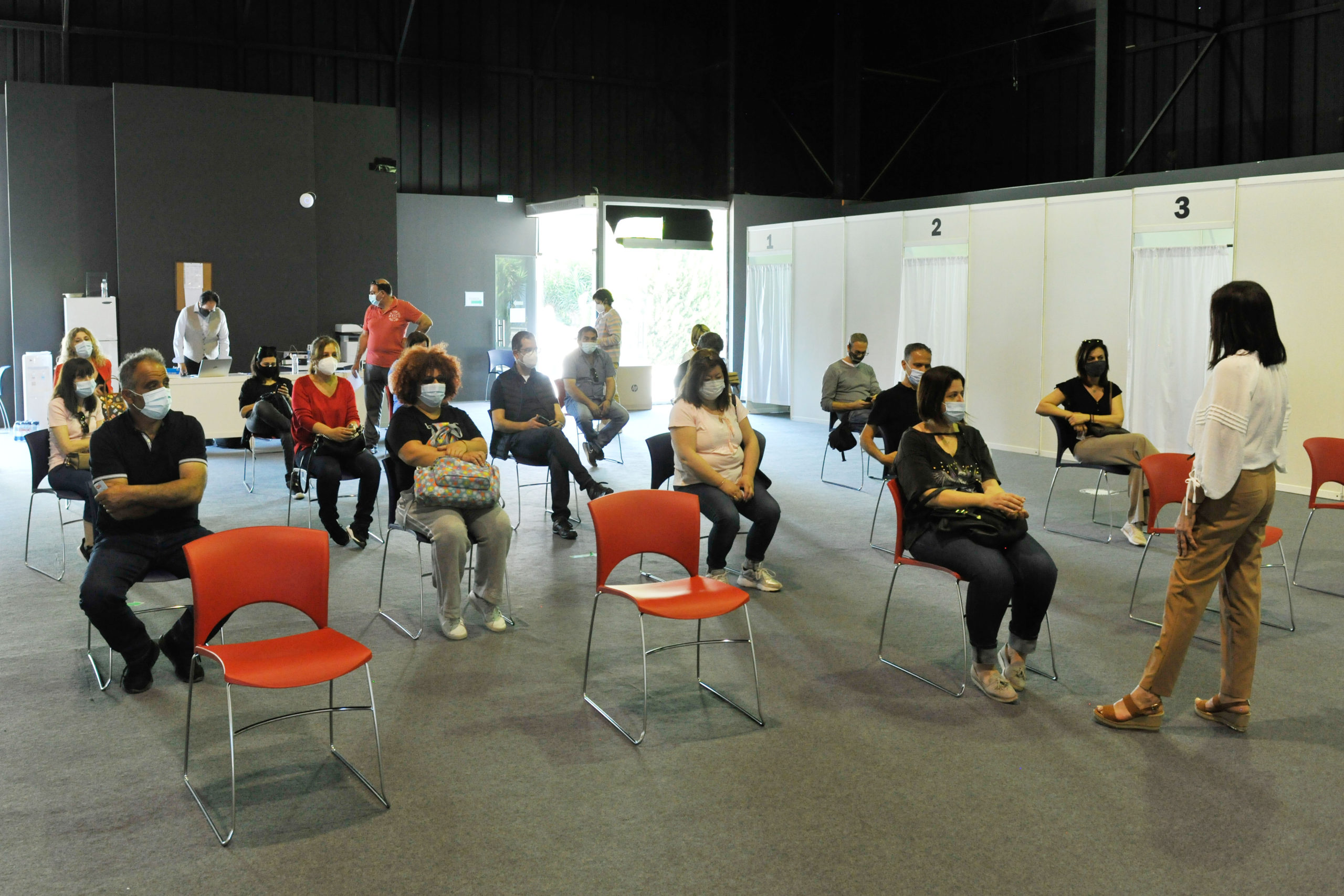More than three-quarters of COVID-19 vaccine appointments made available for people aged 27 and 28 were taken within hours of the online vaccination portal opening Tuesday.
A total of 7,000 appointments were made by 11 am, after the portal opened at 7.30 am with 9,700 vaccination slots made available.
The portal will close at 8 pm, with the Health Ministry not revealing plans of adding more vaccine appointments if the available ones are exhausted.
On Monday, Cyprus vaccination rollout reached people in their 20s, with 9,419 out of 12,600 available appointments booked.
There is no official data on whether slots not taken up is down to the unpopularity of AstraZeneca.
Meanwhile, the Deputy Ministry of Innovation said beneficiaries accessing the portal before 9 am faced “minor technical difficulties” due to high traffic, which have now been resolved.
Cyprus’ vaccination rollout has picked up speed with 371,430 vaccinations carried out, translating into 42.2 doses for every 100,000 inhabitants.
The Health Ministry said that 284,264 people, or 38.4% of the adult population, have received the first jab of a two-dose COVID-19 vaccine, while 87,166 people have completed their vaccination (11.8%).
Wednesday will see people aged 25-26 called to book a vaccination appointment, with the ministry noting that vaccinations will be carried out with all available vaccines, including AstraZeneca.
Concerns over links of rare blood clotting incidents to AstraZeneca’s jab have resurfaced as the vaccination rollout reaches those under 30, but authorities have no plans to change the allocation system.
While the EU Medicines Agency has said the benefits of AstraZeneca’s cheap and easily transportable vaccine outweigh any risks, several European countries have limited use to older age groups.
Norway currently uses only vaccines made by Moderna and Pfizer/BioNTech; Denmark has also excluded the AstraZeneca and J&J shots from its vaccination programme.
The Oxford-AstraZeneca vaccine has been linked to distinctive but rare blood clots that also appear with low levels of platelets (which help clots form) in the blood.
The risk of a clot is roughly one in 100,000 for people in their 40s but rises to one in 60,000 for people in their 30s, evidence suggests.
Two in a million people in their 40s died, rising to four per million people in their 30s.
At the same time, the risks of developing severe Covid, if you catch the virus, fall in younger age groups.
Health Ministry spokesperson Margarita Kyriacou said: “We are progressing normally with the vaccination programme; there is no separate directive for age restrictions for AstraZeneca or any other vaccine.”
Part of the issue appears that Cyprus initially ordered significantly more AstraZeneca vaccines than any other EU-approved jab.










